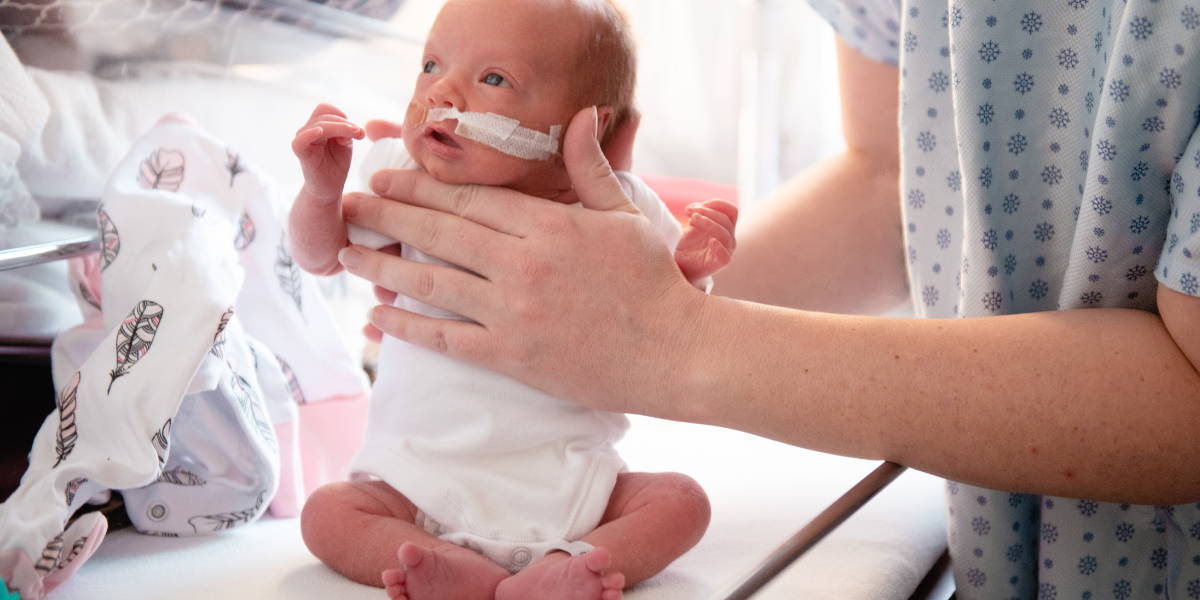
Pictured: Mike Schilling (bottom left) with members of BCFed and MoveUp at the signing of the domestic violence agreement for Community Savings staff
In January 2021, BC Women’s Health Foundation and Community Savings Credit Union formalized a collaborative partnership to support women’s mental health by launching: A Spotlight on Women’s Mental Health.
This joint education and awareness initiative aimed to shine a light on women’s unique mental health needs, while providing access to resources that can support women through the added challenges the COVID-19 pandemic has brought.
Chantal Fisher, Senior Director of Strategic Partnerships, sat down with Mike Schilling, President & CEO of Community Credit Savings Union, to learn more about why partnerships such as these are vital for building more healthy communities, and why women’s mental health should matter to everyone.
Chantal (C): What first inspired Community Savings Credit Union to partner with BC Women’s Health Foundation?
Mike (M): Everyone at Community Savings Credit Union was impressed by the impact of the BC Women’s Health Foundation’s first report in the “Unmasking Gender Inequity” series, which spotlighted how the gendered nature of work means women are at a higher risk of exposure to the COVID-19 virus. We wanted to continue raising awareness of the disproportionate impact of the pandemic on women and – in turn – do our part to inspire meaningful change to better support women in the workplace.
C: How do you feel your company values align with the BCWHF’s mission?
M: Community Savings Credit Union is committed to supporting British Columbia’s working communities. We believe all workers should be treated fairly and with respect, and it’s this belief that guides our organizational decision-making and inspires us to keep doing what we do. The COVID-19 pandemic has once again thrown into sharp relief how women’s experiences and healthcare needs continue to be overlooked in the workplace. We emphatically support every opportunity to bring equitable opportunities to female workers and are delighted to have worked with an organization that continues to bring greater awareness to women’s health needs.
C: Why does women’s health matter to you?
M: The fight for gender equality has never been more important: the disproportionate impacts of the pandemic on women means that the progress we have made in pushing for gender equality is at risk of being eroded. Women’s health needs continue to be stigmatized and discounted, but this needs to change. To create a fair and equitable world, we need to improve awareness of women’s health needs so that employers can support women in the workplace more holistically.
C: In your opinion, what role can male allies play in achieving gender equity across sectors?
M: As a male CEO, I recognize that I am in a position of privilege. Male allies need to use their privilege to make change: more often than not that means stepping back, actively listening to what women are saying, and then proactively acting to embed equitable opportunities into the workplace. As a father of two young daughters I want to create a world where they have the same opportunities as men, and I want to use my voice and leadership position to make this change a reality.
C: Do you have a personal story you’d feel comfortable sharing that inspired you to support women’s health?
M: I have been surrounded by strong women role models my whole life. My elder sister and aunt particularly influenced my life following the death of my mother when I was six years old. Of course, as a child, one doesn’t realize the stresses and sacrifices they made on my behalf. As a father of two young girls I do feel a sense of responsibility and opportunity to add my voice and take actions which will create a more equitable world, to recognize and support women more fairly.
C: What women’s health statistic shocks you? How did that change how you perceive women’s health?
M: I find it particularly shocking that 40 per cent of women don’t have the access they need to mental health resources. It’s a problem that can so easily be fixed, yet the impact of this is overwhelming. It also made me appreciate how much more we can be doing as employers to support women’s mental health during the pandemic. There are so many small actions employers can be doing to help women during this time, but the impact of these simple actions can be mighty.
C: In your opinion, why is it so important for companies to invest in community?
M: If our communities prosper, we prosper: it’s that simple. By building more inclusive and resilient communities, businesses are future-proofing their local economies, and the pandemic has only reinforced this relationship.
GET INVOLVED:
- Visit unmaskgenderinequity.ca to read how the pandemic is exacerbating women’s health inequities.
- Read our Spotlight on Mental Health to learn how women’s mental health is suffering due to the COVID-19 pandemic.
- Make a Company Commitment to women’s health. To learn how, contact chantal.fisher@bcwomensfoundation.org
- Donate to support the emerging needs of women and their communities during the COVID-19 pandemic.
BC Women’s Health Foundation is BC’s largest non-profit organization dedicated to advancing the full spectrum of women’s health. The information shared is intended to educate, inform, and point readers to credible sources. It is not intended to substitute professional medical advice.
-
Lauren’s Story
Through the loss of a pregnancy and the birth of a baby, the team at BC Women’s provided the emotional suppo...
Read more -
Making Strides For Women In Midlife
Women deserve care that is evidence-based and takes a lifespan approach. Women in midlife can experience a wid...
Read more -
Unlocking the future for babies with brain injuries in the BC Women’s NICU
For parents with a newborn in the Neonatal Intensive Care Unit (NICU), one of the hardest questions to face is...
Read more



